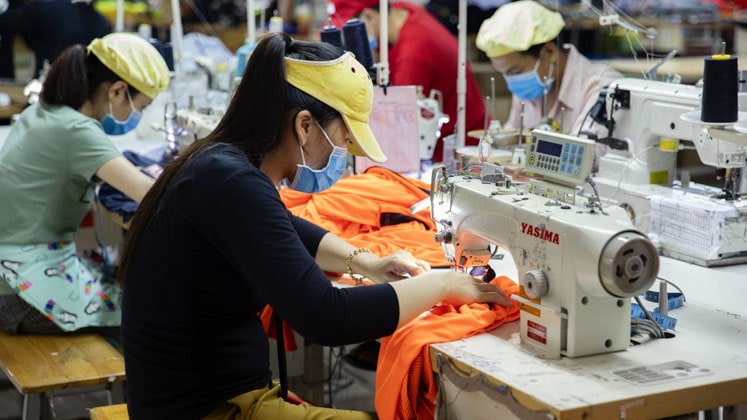
Changes proposed to a trade system that would make foreign companies, such as Korean textile firms in Vietnam, ineligible for tax exemptions have caused concern in the textile industry, which fears that it will drive up costs and force manufacturers to relocate their hubs to other parts of Asia, according to the Korean Federation of Textile Industries.
The approaching transition to the “on-the-spot exports and imports” system, which might happen as soon as the end of this year, lies at the heart of the problem. Korean textile manufacturers have made significant investments in Vietnam during the previous several decades.
According to the Vietnam Textile and Apparel Association, Korean enterprises are the largest investors in this sector, accounting for 25 per cent of foreign textile investments totaling $4.8 billion during the last 30 years.
While the move will affect all foreign companies operating in Vietnam, Korean textile enterprises that have extensively invested in the nation due to the tax break may be among the hardest hit.
Korean enterprises assert that while the majority of the raw materials used by Vietnamese sewing factories were imported from China or Korea in the past, more supplies are now sourced within Vietnam.
In other words, despite the fact that a foreign company exports Vietnamese items, this supply chain will no longer be considered export-import commerce. Manufacturers would face an 8 per cent value-added tax if transactions were reclassified as local. It will revert to 10 per cent beginning next year, after being temporarily decreased as an economic stimulus.
The impact of such a move could be negative for foreign exporters because increased taxes will be reflected in the cost, resulting in poorer price competitiveness, which has been a key benefit of Korean enterprises operating in Vietnam.






